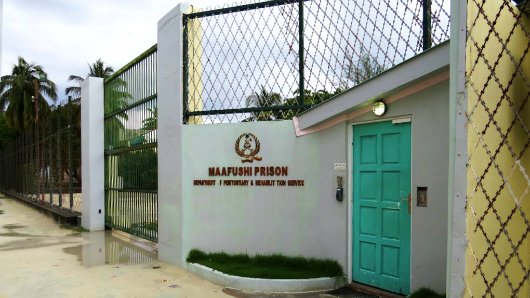Concern is growing over the health of opposition leaders in custody. The Adhaalath Party president Sheikh Imran Abdulla’s family have said the government is attempting to weaken him physically and psychologically, while under police custody.
Meanwhile, ex-president Mohamed Nasheed’s lawyers say he is being denied access to specialist medical attention despite recommendations from doctors.
He is serving a 13-year jail sentence on a terrorism conviction, relating to the detention of a judge during his tenure.
The opposition leader’s lawyers said doctors at the Maafushi Jail health center and at a Malé military clinic in May recommended that he get a MRI scan. But the government has not authorized the scan, lawyers said in a statement today.
Nasheed’s lawyers also said they were denied their weekly visit with Nasheed today.
“The government suddenly cancelled this visit today without any rationale, via a phone call to the lawyers. Since President Nasheed’s transfer to Maafushi, his access to lawyers have been restricted by the government,” the statement said.
Sheikh Imran is also charged under the 1990 Anti-Terrorism Act, but with threatening to harm police officers and inciting violence at a historic anti-government protest on May 1. He has pleaded not guilty to the charges.
The criminal court last week ordered police to hold Imran in pre-trial detention until the conclusion of his terrorism trial.
Imran was brought to the AMDC clinic in Malé today. He was also taken to see a doctor the previous day and on the night of June 7 as well.
Imran was suffering from body aches as he was forced to sleep on a small bunk in a warm, mosquito-infested cell, the family member told CNM. The cell has a fan but the electricity is periodically cut off, the family member claimed.
Imran was first arrested on the night of May 1 and held in remand detention for 26 days. Hours before the criminal court ordered his release on May 27, the High Court overturned the criminal court’s May 17 ruling to keep Imran in police custody for 10 days.
The appellate court ordered his transfer to house arrest, noting that Imran has diabetes and that tests conducted following his arrest showed high levels of blood pressure, cholesterol, and urine acidity.
A doctor had also recommended that Imran should not sleep on hard surfaces due to a spinal injury.
Minivan News is awaiting a response from the home ministry.






